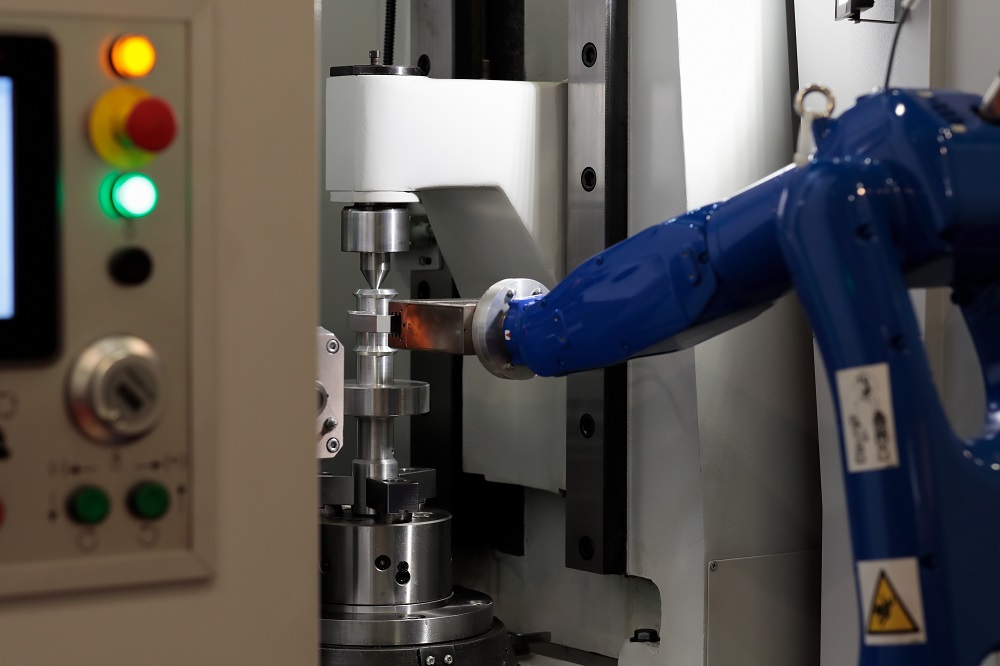Digital transformation is rapidly changing every industry, including the manufacturing sector. Robotics and automated machinery, as well as advanced technology like artificial intelligence (AI) and the Industrial Internet of Things (IIoT), are helping manufacturers automate business and production processes, optimize their supply chain, and improve overall efficiency.
With so much ongoing rapid change, it may be difficult for manufacturers to keep track of new developments or determine which solutions to adopt. The result? Reluctant implementation, limited investment, and delayed rollouts when new technology deployment should be accelerating. That’s why it’s so important to understand how automation can benefit your operation.
Here are the four biggest manufacturing challenges impacting the industry, and how automation can help overcome them:
1. High Material Waste
Waste is often inevitable throughout the manufacturing process, existing in the form of scrap from defective parts, cutting fluid waste, excessive cutting tool consumption, downtime, and so much more. Automation solutions can reduce waste by streamlining production processes, optimizing material usage, and improving production quality. For example, installing machine control and data collection systems can dramatically reduce machine downtime and give manufacturers insight into production data to make better decisions.
2. Rising Labor Costs
Labor costs are one of the largest line items on every manufacturer’s budget, and they’re only growing as talent competition and the skills gap increases. The labor shortage is driving more competitive wages, while turnover is disrupting operations and forcing manufacturers to invest more in training.
Solutions like robots and cobots can drastically offset these rising costs. Automating tasks involved in assembly, material handling, and quality control increases efficiency and can improve profit margins while minimizing reliance on labor. During busy seasons, shops can easily scale output without hiring additional support. Robots also create a more desirable workplace since they reduce manual labor required for employees.
3. Better Customer Experience
In today’s volatile marketplace, one of the biggest manufacturing challenges is simply providing satisfactory customer service. Delayed orders can be difficult to avoid with so much supply chain congestion, but customers are anxious for results and constantly looking for new, more reliable suppliers. The efficiency gains automation enables in order processing, production, and inventory management can help offset the impact of external delays and ensure smoother transactions.
New technology can even help manufacturers improve communication and customer relations. Automation provides unprecedented visibility into the status of orders, so customers never have any doubt about where their products are or why there’s a delay. Though problems aren’t always avoidable, automation can help reduce uncertainty, providing a better experience for end users. This transparency can go a long way in improving trust and saving accounts that otherwise might have switched to competitors.
4. Poor Part Quality
Poor production processes can result in high scrap rate (increasing waste), diminished finish quality (requiring rework), and dramatically increase production costs affecting profitability. Automation can help mitigate these problems by reducing potential for human error, inconsistent processes, or improper material handling. Aside from CNC machining or 3D printing, robots can automate tasks involved in material inspection, handling, and even assembly, with greater efficiency and higher standards than manual labor. Automated sensors can also provide real-time data and analytics that help machine operators and shop managers identify quality issues early in the production process, allowing them to address problems sooner.
With supply chain instability, a growing labor shortage, and unprecedented inflation, there have never been more manufacturing challenges than there are now. Fortunately, implementing automation can help solve many of the problems facing the industry today and future-proof companies against manufacturing challenges down the road.
Not sure where to begin? Schedule a site visit with Master Fluid Solutions® to assess your operation and improve cutting fluid management, so you can prioritize investment in the most beneficial automation for your operation.

